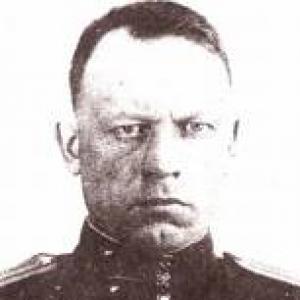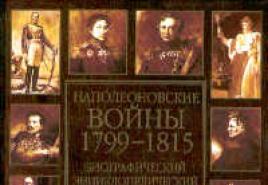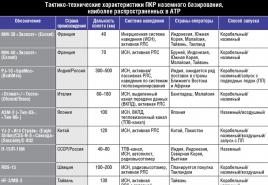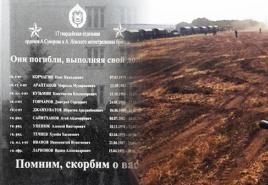Analysis of the poem "Autumn" K. Balmont
Speaks a lingonberry,
Became colder days
And bird scream
The heart has become sad.
Flocks of birds fly away
Away, for the blue sea.
All trees shine
In a multi-colored dress.
The sun is less likely laughing
No in the colors of the glory.
Soon autumn wakes up
And pay asking.
1899
Poet Konstantin Balmont is considered to be one of the first Russian symbols, whose work became a model for imitating among the writers at the turn of the 19th and 20th centuries. Experimenting with styles, Balmont was fond of decadence and romanticism, but it was the symbols that attached great importance in his work, considering that only with their help could most fully express their thoughts, to convey them to future generations of readers.
K. D. Balmont ... In his work, very often turned to nature, describing her beauty, mystery and greatness. His verses are amazingly beautiful and musical, ideally selected rhymes, understandable words and some ease of writing, gives the works of Balmont tenderness, freshness and singer. In the poem "Autumn", the poet describes the beginning of autumn pore - multicolored autumn.
Poem " Fall"It was written by the poet in 1899, at the peak of literary glory. This is a short and, at first glance, a very lyrical work actually carries a sufficiently deep semantic load. A poem begins with unpaired phrases that a lingonberry is sleeping in the forest, the days become shorter and the cry of flying to the south birds brings sadness. This is exactly what the Autumn Handra looks like, which often covers the souls of impressionable and romantic people, thinly feel around the world and living with him in harmony. "
The author says " in the heart became sad" Whether this state of nature of autumn pores is so impressed by the poet, or the coming changes in society, since the poem was written in 1899. The heart of the poet covers sadness, even " the sun is less likely laughing"... rainy weather, which is quite characteristic of the second half of autumn, here is a certain symbol of the onset of not the best changes and not only in nature as a change of seasons.
We should not forget that this work is dated last year of the outgoing 19th century. The change of epoch causes the symbolists not only light sadness, but also quite explained panic. In each event, they see a kind of omen that very soon life will change. And not for the better. Therefore, in the poem "Autumn", distinct nostalgic notes, which today, after a century, can be called prophetic. Konstantin Balmont admires birds that fly over the sea, in the warm edges, and as if it would be sick, that soon he will have to leave Russia, in which the autumn will come not in time of the year, and on the feeling when everything is still dying, and the new destined to appear.
The autumn itself is associated with tears, which is also very symbolic. And it's not just a rainy weather, which is very characteristic of this time of year. It will take 17 years, and in exactly the same rainy autumn day the world will be split into two opposing camps. Therefore, the phrase "soon autumn will wake up and pay asking" it is possible to interpret how the premonition of trouble, which is also inevitable, as well as the change of seasons.
If we consider this work from a literary point of view, not trying to read it between the lines, then the poem "Autumn" is a magnificent sample of landscape lyrics. Moreover, Konstantin Balmont, which hears the polyglot and an expert of 15 foreign languages, does not seek to bloom the description of the saddock of the year as bright epithets and comparisons. "
Turn to the text of the poem " Fall».
The text of the poem is divided into three quatrasions associated with the meaning, which organizes the attention of the reader.
The integrity of the text is achieved not only in meaning, but also due to the exact lexical repetitions (steel), root repeats (bird-birds, multicolored - colors), contextual synonyms (colder-sadder).
The dominant of all text is the title " Fall" He not only asks the theme of the poem, but also turns into the name of its own in the last stanza " Soon the autumn will wake up ..." Thus, the poet shows that autumn for him is a living person.
By genre, this poem belongs to Elegy. Elegy is written from the first person. Thus, we have a lyrical product imbued with a sad mood.
The poem is written with a double-legged anaper, thanks to which the text is pronounced easily and smoothly, as if by Naraspov. The exact female rhyme and the cross type of rhymes contribute to this. In the aggregate of these signs, the text sounds melodious and more lyrical.
As already mentioned, in the text of the poem there are practically no art trails. However, it is not difficult to notice the constant epithet "Blue Sea" and the personification " The sun is less likely laughing», « Soon the autumn will wage and pay the demand" With these words, the poet emphasizes that nature, as if a living being, also longing in spring pores. She is sad for warm summer days. Inside it is always spring, as in the soul of the author itself, which is easy and without any special jewelry speaks of autumn pore.
Consider the syntax of the poem. The first two stains are complex sentences consisting of a number of ordinary. The last stanza consists of one complex and one complicated by homogeneous suggestions. Interesting the presence of composite nominalities (" steel colder», « it became sad», « less often laugh"). The lexical importance of the composite faugible, concluded in its basis, does not express any action, and it serves to transfer the mood of the nature and consonant with the author's mood.
After the first reading, it can be noted that the logical emphasis falls on these faugibles that it is impossible to better give the feelings of the author himself.
From the phonetic side you can note allity on the deaf noisy FROM, C.. Due to the repetition of these consonant sounds, the expressiveness of the poem is increasing, it becomes harder. In these sounds, sadness and longing not only of nature itself are captured, but also the author. The reader feels a sad mood of the poet, it seems that he himself is somewhere near and hears his quiet singeling speech.
By from Peeling Bru from Nika,
FROM Tali days colder,
And bird scream
IN from ERD c.
e. from Talo Gr. from Tale.
FROMtai of Pv c. fly away
Away, for fromanger sea.
All trees Bl. fromtaut
In different c.reregnate.
FROMfill c. e less often frommei [ c. but],
No in c. Vegetes incense.
FROMcoro O. frompheni pro fromnot[ c. but]
And pay frompro fromoya
So poem "Fall"- a bright sample of landscape lyrics. Balmont presented a description of the saddown of the year, without using bright epithets and comparisons, not to clean it with bright words. He managed to convey in this poem and description of the autumn, and the state of his soul and feelings that fill his inner world.
Speaks a lingonberry,
Became colder days
And bird scream
The heart has become sad.
Flocks of birds fly away
Away, for the blue sea.
All trees shine
In a multi-colored dress.
The sun is less likely laughing
No in the colors of the glory.
Soon autumn wakes up
And pay asking.

Poet Konstantin Balmont is considered to be one of the first Russian symbols, whose work became a model for imitating among the writers at the turn of the 19th and 20th centuries. Experimenting with styles, Balmont was fond of decadence and romanticism, but it was the symbols that attached great importance in his work, considering that only with their help could most fully express their thoughts, to convey them to future generations of readers.
The poem "Autumn" was written by the poet in 1899, at the peak of literary glory. This is a short and, at first glance, a very lyrical work actually carries a sufficiently deep semantic load. A poem begins with unpaired phrases that a lingonberry is sleeping in the forest, the days become shorter and the cry of flying to the south birds brings sadness. It is this way that the autumn chandra looks like, who often covers the souls of impressionable and romantic people., thinly feel around the world and living with him in harmony. However, the first quatrain is intended to customize the reader to a certain way, prepare for the perception of more important and meaningful information that the author is going to convey to them.
We should not forget that this work is dated last year of the outgoing 19th century. Changing eras causes symbolists not only light sadness, but also quite explained. In each event, they see a kind of omen that very soon life will change. And not for the better. Therefore, in the poem "Autumn", distinct nostalgic notes, which today, after a century, can be called prophetic. Konstantin Balmont admires birds that fly over the sea, in the warm edges, and as if it would be sick, that soon he will have to leave Russia, in which the autumn will come not in time of the year, and on the feeling when everything is still dying, and the new destined to appear.
The autumn itself is associated with tears, which is also very symbolic. And it's not just a rainy weather, which is very characteristic of this time of year. It will take 17 years, and in exactly the same rainy autumn day the world will be split into two opposing camps. Therefore, the phrase "soon autumn will wake up and pay asking" it is possible to interpret how the premonition of trouble, which is also inevitable, as well as the change of seasons.
If we consider this work from a literary point of view, not trying to read it between the lines, then the poem "Autumn" is a magnificent sample of landscape lyrics. Moreover, Konstantin Balmont, which hears the polyglot and an expert on 15 foreign languages, does not seek to bloom the description of the saddock of the year of the year with bright epithets and comparisons. The image of nature in this work is secondary, as well as the feelings of the poet. Therefore, the poem does not produce a special impression on readers, since in Russian literature you can find much more exciting and memorable rhymed lines dedicated to autumn. However, from the point of view of symbolism, this poem is flawless. It says more than enough for those who are used to looking for in ordinary words hidden meaning. This is the natural sadness associated with the change of centuries, and the secret hope that, perhaps, the premonitions will be deceptive, and attempts to stop the moments while still carefree, captured them in verses. But, alas, the prophecies of great poets, to which, without a doubt, and Konstantin Balmont belongs, tend to come true exactly. The author himself, at the time of writing a poem "Autumn", only vaguely guess, and together with the fall, not only his own life is mourned, but also the fate of his country, in which fatal changes are coming.
"Autumn" Konstantin Balmont
Speaks a lingonberry,
Became colder days
And bird scream
The heart has become sad.Flocks of birds fly away
Away, for the blue sea.
All trees shine
In a multi-colored dress.The sun is less likely laughing
No in the colors of the glory.
Soon autumn wakes up
And pay asking.
Analysis of the poem of Balmont "Autumn"
Poet Konstantin Balmont is considered to be one of the first Russian symbols, whose work became a model for imitating among the writers at the turn of the 19th and 20th centuries. Experimenting with styles, Balmont was fond of decadence and romanticism, however, it was the symbols that attached great importance with the work, considering that only with their help could be most fully and pronounced their thoughts, bring them to future generations of readers.
The poem "Autumn" was written by the poet in 1899, at the peak of literary glory. This is a short and, at first glance, a very lyrical work actually carries a sufficiently deep semantic load. A poem begins with unpaired phrases that a lingonberry is sleeping in the forest, the days become shorter and the cry of flying to the south birds brings sadness. It is this way that the autumn chandra looks like, who often covers the souls of impressionable and romantic people., thinly feel around the world and living with him in harmony. However, the first quatrain is intended to customize the reader to a certain way, prepare for the perception of more important and meaningful information that the author is going to convey to them.
We should not forget that this work is dated last year of the outgoing 19th century. Changing eras causes symbolists not only light sadness, but also quite explained. In each event, they see a kind of omen that very soon life will change. And not for the better. Therefore, in the poem "Autumn", distinct nostalgic notes, which today, after a century, can be called prophetic. Konstantin Balmont admires birds that fly over the sea, in the warm edges, and as if it would be sick, that soon he will have to leave Russia, in which the autumn will come not in time of the year, and on the feeling when everything is still dying, and the new destined to appear.
The autumn itself is associated with tears, which is also very symbolic. And it's not just a rainy weather, which is very characteristic of this time of year. It will take 17 years, and in exactly the same rainy autumn day the world will be split into two opposing camps. Therefore, the phrase "soon autumn will wake up and pay asking" it is possible to interpret how the premonition of trouble, which is also inevitable, as well as the change of seasons.
If we consider this work from a literary point of view, not trying to read it between the lines, then the poem "Autumn" is a magnificent sample of landscape lyrics. Moreover, Konstantin Balmont, which hears the polyglot and an expert on 15 foreign languages, does not seek to bloom the description of the saddock of the year of the year with bright epithets and comparisons. The image of nature in this work is secondary, as well as the feelings of the poet. Therefore, the poem does not produce a special impression on readers, since in Russian literature you can find much more exciting and memorable rhymed lines dedicated to autumn. However, from the point of view of symbolism, this poem is flawless. It says more than enough for those who are used to looking for in ordinary words hidden meaning. This is the natural sadness associated with the change of centuries, and the secret hope that, perhaps, the premonitions will be deceptive, and attempts to stop the moments while still carefree, captured them in verses. But, alas, the prophecies of great poets, to which, without a doubt, and Konstantin Balmont belongs, tend to come true exactly. The author himself, at the time of writing a poem "Autumn", only vaguely guess, and together with the fall, not only his own life is mourned, but also the fate of his country, in which fatal changes are coming.
One of the most touching and lyrical works of Russian landscape lyrics poem K. Balmont "Autumn" was created in 1899. This is a difficult period in the history of our country; The change of century and the restless atmosphere in society visited sad thoughts that were associated with sad autumn weather.
The text of the poem of Balmont "Autumn" guys read already in grade 5, often he is asked to learn by heart. And this is quite understandable: clean, crystal style of this little masterpiece very much like children. Speaking about him in the lessons of literature, the fifth-graders celebrate the sad mood of the poet, which he expresses in his work. Images are so simple and touching, which is very easy to imagine a sad beauty of autumn, weeping with rain tears. Young readers are seen in this poem an Elegy landscape, decorated and lively by personification: "Autumn will wake up and pay", "the sun laughs." Turning to this work again, already in high school, schoolchildren pay attention to the fact that the poem is written in the last autumn of the XIX century. The poet with longing looks back in the past and looks into the future without optimism. Not the arrival of winter he sees there, but the tears of autumn. What does she mourn? We can only guess this.
The world needs beauty. In the beauty of poems, in the beauty of autumn. See unusual paints of autumn nature, beauty touches, teach the slightest smells, hear the sounds - that's what I wanted to convey to us to Balmont. Poems about the autumn Balmont are full of quiet charm.
"Finally"
So the autumn is gold
It comes to us again.
Thicker haze, morning tai
And dressed the forest, bliped,
In the leaves, red like blood.
I would think that spring
Place for fire.
And meanwhile as if stern
All foliage paint,
Serves in autumn head.
Recking finances
Green-red.
Leaf bright, but rare leaves,
And spider, gossip mesh,
Chinit leaves torn trail.
How to fall ruby \u200b\u200brustling
In the web arch
Collapsed suddenly balcony trembling,
And for winter sleep, from the age
Autumn architect call.
But spider, not hearing her
I extended the rope.
Here is a ready wall, niche,
The roof is bonded,
Waiting for guests, anyone is happy.
About autumn Balmont wrote in a special way - sincerely, heartily. In his verses there is no excessive jury of poetic decorations. Everything is clear, concise.
"Fall"
Moisture was cool.
In the evening - where is he, Ruby?
Zori - in the Merziana Opal,
Clouds - Hordes of ice floes.
Autumn sickle one-chip
Squeezed close fields.
The air became hard and rude,
Saving a foliage of a mechanical.
Caught a red summer
Night, the colors are not looking for.
Want to red color?
Here are the leaves of ivy.
Balmont - an expert of poetry, his poems attract the strength and expressiveness of the artistic language, the brightness and painting of images and paintings.
"Fall"
Speaks a lingonberry,
Became colder days
And bird scream
The heart has become sad.
Flocks of birds fly away
Away, for the blue sea.
All trees shine
In a multi-colored dress.
The sun is less likely laughing
No in the colors of the glory.
Soon autumn wakes up
And pay asking.
"Autumn forest"
Forest bowl. In emerald
Recently, there and here,
Rubins were poured, rusty.
Now, brocade foliage, full,
Like a smoke-yellow wall
Armor of the woods, Redie.
The color was aged, - not gray,
And gray-ash, seeded, -
Slides on this fairy tale copper
And, flashing, goes out the turn.
So at an hour of evening, goat,
In the sky lazuries, in front of us
Flashes incorrect wings
Rushing quickly twisted
And suddenly disappear over the water,
Where, the gaze of the soul to distinguish with dreams,
The last slow beam is a gold.
"Merry autumn"
Twitter Sparrow,
Thin whistle of blue.
For huge clouds
No longer salary.
Thunders died at the bottom
Blue skies.
All in purple fire
Golden forest.
The wind quickly ran
Breakdown.
Color Ryabina Alom became
The song sings the beam.
In the Greet colorful I dly
Walking string.
Autumn, I love you,
Just like spring.
"Autumn holiday"
Still my autumn did not come,
But the high summer passed,
And trees in front of the chora
My holiday is missing.
This holiday is a great consciousness
That sat down a flame retardant dragon,
And the fire did not reduce the Susian,
But arose as a ruby \u200b\u200bthrone.
Above the tops of the scarlet miracle,
Grace decreased from height,
And filled long hum
Illuminated paint sheets.
Widely as the latest bees,
Pull tale sings
Leaving for neighboring bodies
Falling in consciousness as honey.
High, to the Sugan Thanks,
Freak family cranes
I like a point of immeasurable circle,
Everything is mine, and near, and away.







